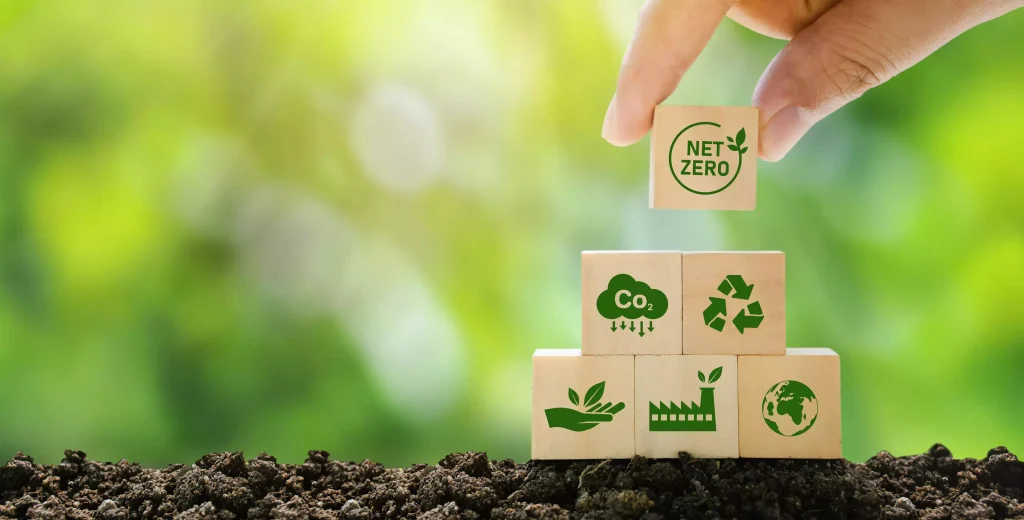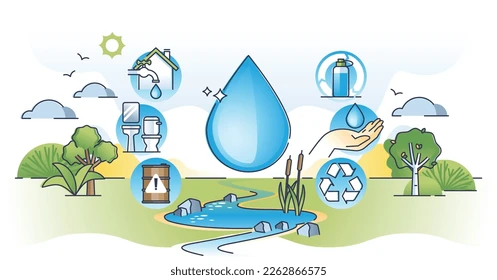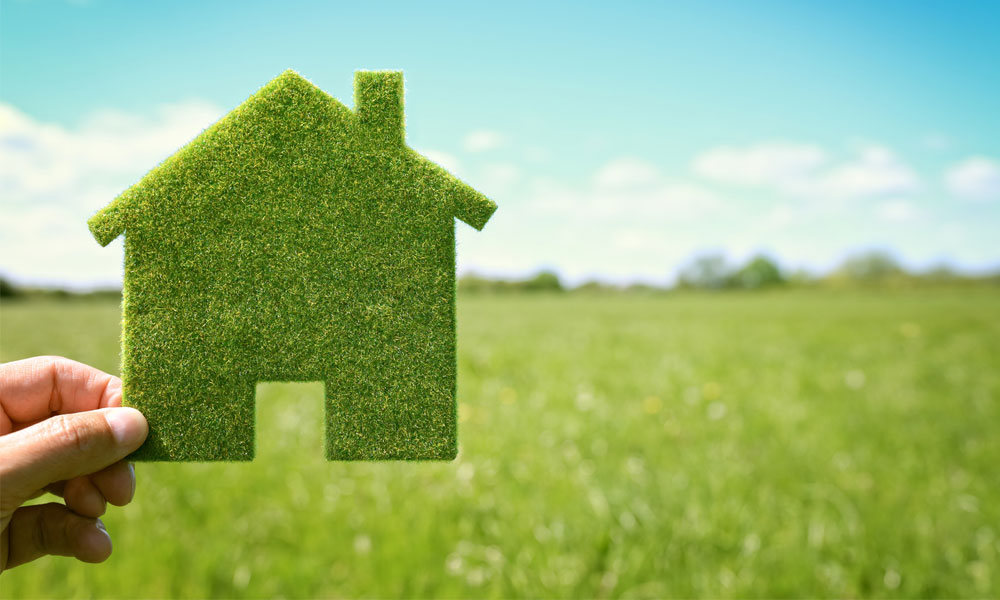As homeowners become more environmentally conscious, sustainable home improvements and green building practices are gaining popularity. From kitchen and bathroom remodeling to larger home improvement projects, choosing eco-friendly materials and techniques can significantly reduce your carbon footprint while enhancing the comfort and efficiency of your home. This guide will explore sustainable practices and materials that can be integrated into your kitchen remodeling and bathroom remodeling, helping you make more eco-conscious choices with the help of skilled home improvement contractors.
1. Why Sustainable Home Improvements Matter
Sustainability is more than just a trend—it’s a long-term approach to building and remodeling that prioritizes environmental responsibility, energy efficiency, and the health of the occupants. Green building practices aim to reduce resource consumption, lower waste production, and minimize harmful emissions, making homes more eco-friendly while improving indoor air quality.
When renovating your kitchen or bathroom, it’s crucial to consider the environmental impact of the materials and practices you choose. Eco-friendly home improvements are an investment in the future, reducing utility bills, minimizing waste, and improving overall comfort.
2. Energy Efficiency: A Key Focus in Remodeling
One of the primary goals of sustainable home improvement is improving energy efficiency. Kitchen and bathroom remodeling contractors can help you choose energy-efficient appliances, fixtures, and building materials to lower energy consumption and reduce your carbon footprint.

In the Kitchen:
- Energy-efficient appliances: Replacing old refrigerators, dishwashers, and stoves with Energy Star-rated models can save you money on energy bills while reducing electricity consumption.
- LED lighting: Switching to LED lights throughout the kitchen will not only reduce energy usage but also provide long-lasting, cost-effective lighting solutions.
- Smart thermostats: Installing a smart thermostat allows you to better control heating and cooling, ensuring that energy isn’t wasted in spaces you aren’t using.
In the Bathroom:
- Water-saving fixtures: Opt for low-flow toilets, faucets, and showerheads that use less water without sacrificing performance. These fixtures help conserve water while reducing your water bills.
- Energy-efficient lighting: LED lights are perfect for bathrooms where lighting is often left on for extended periods. They consume less power and last much longer than traditional bulbs.
- Heated floors: Installing electric radiant floor heating systems can reduce the need for bulky radiators and improve the energy efficiency of your bathroom by providing direct warmth.
When discussing your kitchen remodeling or bathroom remodeling project with contractors, make sure to mention your desire for energy-efficient solutions to create a greener, more cost-effective space.
3. Sustainable Materials for Kitchen and Bathroom Remodeling
Selecting sustainable materials is a critical component of green building practices. Many eco-friendly materials are durable, low-maintenance, and help reduce the environmental impact of your renovation.
In the Kitchen:
- Bamboo: A highly renewable material, bamboo is a great choice for flooring, cabinetry, and countertops. It grows quickly, requires less water than traditional timber, and is naturally durable.
- Recycled materials: Consider countertops made from recycled glass, composite materials, or reclaimed wood. These materials divert waste from landfills and create a unique, eco-friendly aesthetic in your kitchen.
- Cork flooring: Cork is a renewable material that is comfortable underfoot, provides sound insulation, and has natural resistance to mold and mildew. It’s also biodegradable, making it an excellent sustainable flooring choice.
In the Bathroom:
- Recycled tiles: Ceramic and porcelain tiles made from recycled materials are both durable and environmentally friendly. Some manufacturers offer tiles made from post-consumer glass or recycled clay, making them a sustainable option for bathroom walls and floors.
- Natural stone: Materials like marble and granite are highly durable and, when sourced responsibly, can be an eco-friendly option for countertops and flooring.
- Sustainable wood: If you’re opting for wood accents in your bathroom, choose sustainably sourced or reclaimed wood, which reduces deforestation and promotes recycling.
By working with kitchen and bathroom remodeling contractors experienced in green practices, you can ensure your space is built with materials that are not only sustainable but also functional and stylish.
4. Water Conservation and Efficient Plumbing Systems
Water conservation is a key part of sustainable home improvement. Bathrooms and kitchens are major water consumers, so choosing eco-friendly plumbing systems can have a significant impact on reducing overall water usage.

In the Kitchen:
- Low-flow faucets: Installing low-flow faucets or faucet aerators reduces water waste without sacrificing water pressure, making them ideal for kitchen remodeling projects.
- Dishwasher upgrades: Newer, energy-efficient dishwashers use less water per cycle, and many models are designed to save both water and energy. Replacing an old dishwasher with an Energy Star-rated model will help conserve resources.
In the Bathroom:
- Low-flow toilets: Replacing old toilets with low-flow or dual-flush models can cut water usage by up to 50%, which significantly reduces your home’s water consumption.
- Smart showers: Consider installing a smart shower system that controls water flow, temperature, and timing. These systems are designed to reduce water waste while maintaining a comfortable shower experience.
- Tankless water heaters: Tankless or on-demand water heaters are more energy-efficient than traditional water heaters because they heat water only when you need it, eliminating the need to store hot water.
When planning your bathroom and kitchen remodeling, make sure to discuss water-saving options with your home improvement contractors to ensure that your renovation supports sustainable water use.
5. Indoor Air Quality: Healthy Living with Green Practices
Another significant benefit of sustainable home improvements is the enhancement of indoor air quality. Using non-toxic materials, proper ventilation, and low-VOC (volatile organic compound) paints and finishes can reduce harmful chemicals and create a healthier living environment.
In the Kitchen:
- Non-toxic paints and finishes: Choose low-VOC paints, stains, and finishes to reduce harmful fumes. These products are safe for the environment and improve indoor air quality.
- Natural stone countertops: Materials like granite and quartz not only offer durability but are also free from harmful chemicals, unlike some synthetic countertop options.
- Proper ventilation: Installing a range hood and ensuring proper ventilation in your kitchen can help eliminate cooking fumes and improve indoor air quality.
In the Bathroom:
- Mold-resistant materials: Bathrooms are prone to high humidity, which can lead to mold growth. Choose mold-resistant paint, drywall, and tiles to help reduce moisture and improve indoor air quality.
- Ventilation fans: A high-quality exhaust fan will remove excess humidity, preventing mold growth and keeping the bathroom’s air fresh and healthy.
Discussing these options with bathroom and kitchen remodeling contractors will ensure that your renovation improves both the function and the healthfulness of your living space.
6. Green Building Certifications and Standards
If you’re deeply committed to sustainability, you may want to consider obtaining a green building certification for your home. There are several programs available, such as LEED (Leadership in Energy and Environmental Design) and ENERGY STAR, that can help guide your kitchen and bathroom remodeling projects toward higher sustainability standards.
Working with home improvement contractors who are knowledgeable about these certifications can help you achieve a truly green home, making sure that your renovations meet the highest environmental standards.
7. Why Hire Experienced Green Contractors?

Choosing the right kitchen and bathroom remodeling contractors is essential when it comes to implementing sustainable home improvements. Experienced contractors who specialize in green building practices can provide valuable insights and help you navigate the complexities of selecting eco-friendly materials, energy-efficient systems, and environmentally responsible design techniques.
These contractors will also be familiar with local regulations, incentives, and certifications related to green building practices, ensuring that your project meets all required standards while maximizing the sustainability of your home.
Conclusion
Sustainable home improvements and green building practices are an excellent way to reduce your environmental impact while enhancing the comfort and efficiency of your home. Whether you’re renovating your kitchen, bathroom, or undertaking a larger home improvement project, integrating eco-friendly materials, energy-efficient appliances, and water-saving solutions can make a significant difference. By working with kitchen and bathroom remodeling contractors who specialize in sustainable practices, you can ensure that your renovation not only improves the aesthetics and functionality of your home but also supports a healthier and more sustainable lifestyle for you and the planet.
